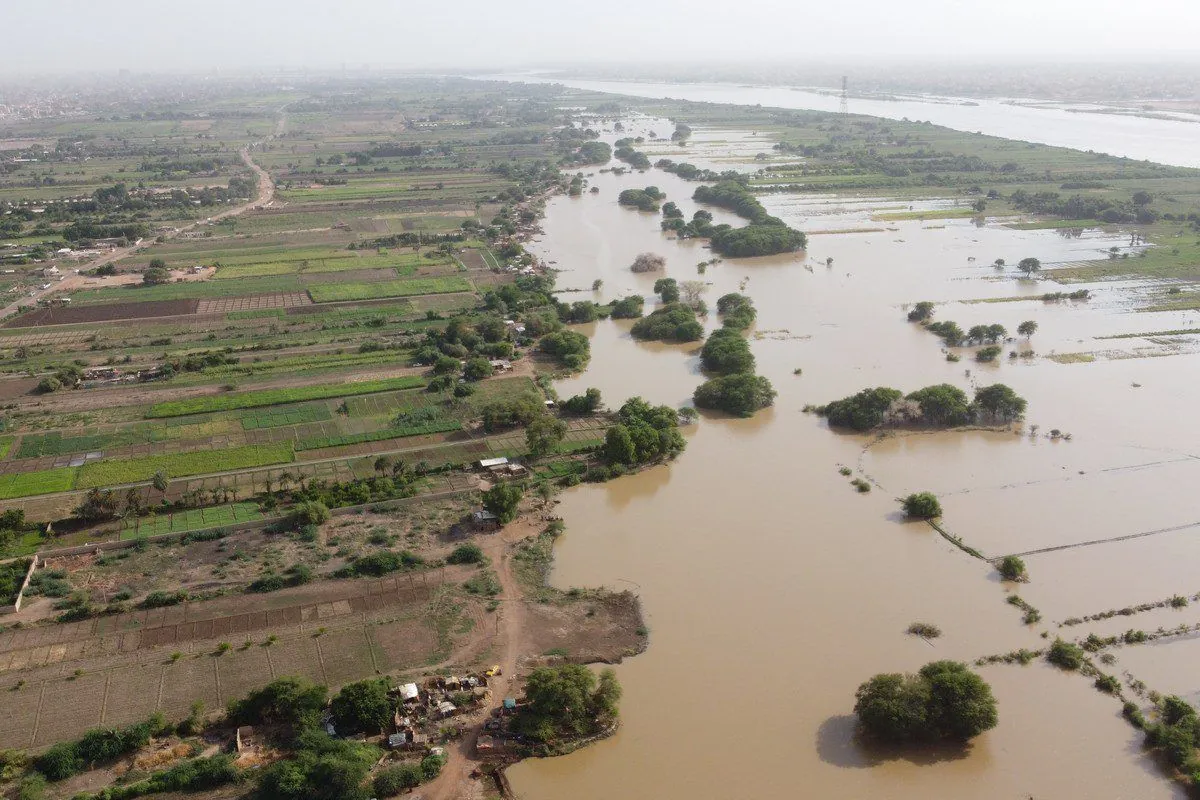The United Nations refugee agency has reported that flooding in Sudan is severely hampering aid delivery to regions already grappling with hunger and famine. This development comes amidst an ongoing humanitarian crisis that has plagued the country for over a year, following the outbreak of conflict between the military and the Rapid Support Forces (RSF), a powerful paramilitary group.
Sudan, the third-largest country in Africa, has been facing multiple challenges since the fighting began in July 2023. The situation has been particularly dire in the western provinces of North Darfur and Darfur, where some of the most devastating violence and displacement have occurred.
According to the UN agency, at least 11,000 people, many already displaced, have been affected by heavy rains and flooding. The Zamzam camp in North Darfur, which houses those fleeing the ongoing conflict, is among the areas most severely impacted.
A July 2024 report by the Integrated Food Security Phase Classification (IPC) indicated that parts of North Darfur, especially the Zamzam camp, are likely experiencing "the worst form of hunger," classified as IPC Phase 5. This famine condition is attributed to the ongoing conflict and severely restricted humanitarian access.
The displacement situation in Al Fasher, the capital of North Darfur, has reached alarming proportions. Since mid-April 2024, an estimated 320,000 people have been displaced in the area, with at least 150,000 believed to have moved to Zamzam camp by May 2024. This influx has caused the camp's population to swell to over half a million in just a few weeks.
Sudan's climate, predominantly arid with a rainy season from June to September, has contributed to the current crisis. Heavy seasonal rains have led to rising floodwaters in parts of the country, with forecasts predicting more storms in the coming days. Local media reported 17 deaths in the northern city of Abu Hamad due to floods, although official casualty figures for the entire country are yet to be released.
The Sudanese Red Crescent's emergency team has reported that 3,000 homes were destroyed in Abu Hamad alone. The Darfur Network for Human Rights described the situation as requiring urgent government intervention to provide shelter and food for those affected.
"The situation calls for community solidarity and urgent assistance to confront this disaster."
Sudan's national weather service has issued a flash flood warning valid until August 13, 2024, for several states including Khartoum, Gezeira, and North Darfur.
The ongoing crisis in Sudan is further complicated by the country's complex history and diverse population. With over 500 ethnic groups speaking more than 100 languages, Sudan has experienced multiple civil wars since gaining independence from Anglo-Egyptian rule in 1956. The conflict in Darfur, which began in 2003, has been a long-standing issue, with the RSF originating from the Janjaweed militias in the region.
As the international community grapples with providing aid to Sudan, it's worth noting that the country has been subject to international sanctions due to conflicts and human rights issues. The International Criminal Court has even issued arrest warrants for Sudanese officials for war crimes in Darfur.
Despite these challenges, Sudan remains a country of significant potential, with rich biodiversity including areas of tropical forest and savanna, as well as substantial oil reserves. However, the ongoing conflict and environmental disasters continue to hinder the nation's progress and the well-being of its approximately 45 million inhabitants.
